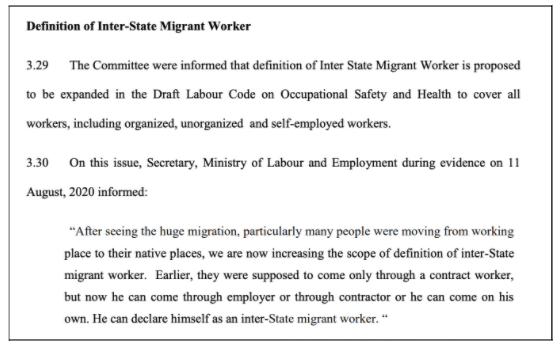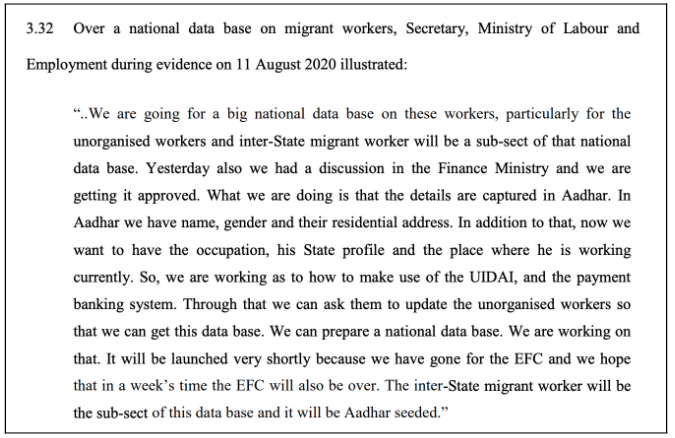During the second week of the budget session of parliament after the monthlong break, there was extensive discussion on the demand for grants of various ministries for 2022-23. The discussion culminated with the passage of the Finance Bill (2022). Here is a review of the second week of the second leg of the budget session.
The Budget session of the Parliament began on 31 January 2022 and is expected to go on till 8 April 2022. The first leg of the Session went on till 11 February 2022 following which there was a break for about a month during which the Standing Committees examined budgetary allocations for various Ministries and Departments. The second leg of the session began on 14 March 2022.
The second week of the second leg of the budget session began on 21 March 2022. The discussions during this week were about the demand for grants of the Ministries of Civil Aviation, Road Transport and Highways, Commerce and Industry, and Ports, Shipping and Waterways. The second week ended with the passage of the Finance Bill 2022, with amendments.
Key Developments
The second week began with the continuation of discussion on the demand for grants of various ministries. Most of the ministries have tabled their demand for grants during this week and were accordingly discussed. The business of the Rajya Sabha started with the Finance Minister responding to the debate on the Appropriation Bill(No.2) & (No.3), 2022, claiming that all dues to states till February 2022 have been cleared by the Centre. The following days saw huge protests by the opposition over the hike in fuel prices. The Congress Party President Sonia Gandhi spoke about the issue of nutrition among the children and suggested the government restart mid-day meals. She stressed upon the importance of Anganwadi network in ensuring the nutritional needs for the children. The Rajya Sabha on 24 March saw the External Affairs Minister Jaishankar briefing about India’s stance on Russia-Ukraine war in six principles. On the final day of the second week, discussion on Finance bill 2022 took place, where questions relating to the legality of the cryptocurrency were raised.
Bills introduced and passed
The Appropriation Bill, 2022 which provides for the authorization and appropriation of certain funds from and out of the Consolidated Fund of India for the financial year 2022-23 was introduced in the Lower House on 24 March 2022. It was also passed by the Lower House on the same day. The Finance Bill, 2022 was also passed on 25 March 2022 with a total of 39 amendments. It marks the completion of budgetary exercise for 2022-23.
Another bill that was introduced in the Lok Sabha, but is yet to be passed is the Delhi Municipal Corporation (Amendment) Bill, 2022. As per the objects & reasons, this bill seeks to enhance transparency and better delivery of civic services by integrating and unifying the existing three Municipal Corporations into a single entity. This is also aimed at achieving optimal utilization of resources and to ensure a mechanism for strategic and synergized planning, as per the statement of objects & reasons.
Reports tabled
The reports on the ‘Demands of Grants for 2022-23’ were tabled by various ministries including Chemicals and Fertilizers, Communications, information and Broadcasting, Electronics and Information Technology, Energy, Finance, Commerce, Coal, Mines, Steel, Petroleum and Natural Gas, Food, Consumer Affairs and Public Distribution, External Affairs, Water Resources, Agriculture, Animal Husbandry and Food Processing, Housing and Urban affairs, Social Justice and Empowerment, Personnel, Public Grievances, Law and Justice. All these reports can be accessed from here.
Apart from this, the standing committee on Coal, Mines and Steel submitted a report on the ‘Development of Aluminium and Copper industries in India’. It apprised of the existing industrial potential of these two minerals. The committee noted that out of the 3896-million-ton bauxite resources, only 656 million tons are under proven and probable category, with the rest remaining unexplored. It asked the ministry to initiate measures to make the best use of available natural resources and to remove the constraints in this process. It also made a note on the per capita consumption of aluminium and copper of 2.5kg and 0.6kg respectively against a global average consumption of 11kg and 3.2kg. Accordingly, the committee suggested the ministry hold deliberations and consultations with all the stakeholders to improve the growth and scope of these industries. The ministry is asked to apprise of the steps taken to the committee.
The Committee on External affairs tabled a report on the ‘COVID-19 pandemic, global response, India’s contribution and way forward’ in the Rajya Sabha. The committee appreciated the government’s efforts to increase the vaccination coverage. The committee also suggested the government come up with more awareness campaigns through print and electronic media about the vaccines to remove the vaccine hesitancy. The Committee advised the government to be cautious about the future pandemics and come up with a proper national policy on combating viral and other diseases that have the potential to transform into a global pandemic. The ministry of Labour and Employment has informed the committee to expand the scope of the definition of ‘inter-state migrant worker’.

When asked about the National data base on workers, the committee was apprised that such a database was going to be launched soon, which will help all stakeholders in tracking their movement and to initiate any welfare schemes accordingly.

The Standing committee on Petroleum and Natural Gas has tabled a report on ‘National Gas Grid including PNG and CNG.’ The committee appreciated the efforts of the government in the direction of increasing the share of natural gas in primary energy mix from the current 6.2% to 15% by 2030. It also lauded the government for ensuring the equitable availability and distribution of natural gas across the country by way of laying pipeline network under the Natural Gas Grid. It suggested the government take adequate measures to remove bottlenecks and constraints so that these infrastructural projects are not delayed.
Action taken report by the government on the observations/recommendations of the committee on Power in its seventh report was also tabled in this past week. The committee expressed satisfaction on learning that an expert committee was constituted to prepare a draft National Electricity Policy. It is expressed happiness that a scheme for reduction of AT&C losses, ‘Revamped Reforms Based and Results Linked Distribution Sector’ was proposed. Under this scheme, 25 crore smart meters with 10 crore prepaid meters are proposed to be installed by 2023.
The Parliamentary Standing Committee on Law and Justice expressed displeasure over the government’s inaction towards the appointment of chairperson and members of Law commission of India.
Questions and Answers
A question was raised in the Lok Sabha on whether the Government had plans to introduce a Solar waste handling Policy anytime soon. The Ministry of New and Renewable Energy and Power responded that since the bulk of solar power capacity is installed post 2010, the quantum of solar panel waste is not expected to be significant till 2035, given the average life span of 25 years for solar panels. Additionally, the ministry also informed about the draft report of the committee constituted by NITI Aayog to study and formulate a strategy to create of circular economy of solar panels.
Another question was asked if the government intends to formulate a food park policy. The Ministry replied that it is already implementing a scheme for Mega Food parks and a scheme to create and improve the agri-processing clusters’ infrastructure. The Mega food park scheme is discontinued with effect from 01 April 2021, while the liability for existing projects remains.
In response to a question raised on status of implementation of Smart Cities Mission (SCM), the Ministry of Housing Affairs replied that a total of Rs. 29,213.6 crores have been released, while Rs. 25,177.6 Crores has been utilized till 04 March 2022. The scheme guidelines provide for the provision of an average of Rs.100 crores per city per year for a period of five years. A total of 100 cities were selected in five phases (20 from January-2016, 13 from May-2016, 27 from September-2016, 30 from June-2017 and 10 from January-2018). However, though the cities selected in 2016 completed five years, the expected amount is not released for few cities.
The Civil Aviation Ministry in the Rajya Sabha mentioned that six airports (Ahmedabad, Lucknow, Jaipur, Thiruvananthapuram, Guwahati, and Mangalore) have been privatized in 2020-21, and an amount of Rs. 331 crores have been paid to the Airport Authority of India (AAI) by these airports as per passenger fee till January 2022. Additionally, the ministry detailed out the list of airports that are earmarked for asset monetization from 2022 to 2025 as a part of the National Monetization Pipeline (NMP).
In an important question about the linkage of Aadhaar Card with Voter ID, the Ministry of Law and Justice held that though the Election Commission of India initiated a program under National Electoral Roll Purification and Authentication Programme in 2015 , it was eventually stopped because of the Supreme Court Judgement on Aadhaar usage. However, the Ministry appears to be motivated to link both these cards in the future to facilitate the single entry of any elector in the electoral roll.
Featured Image: Parliament Review


